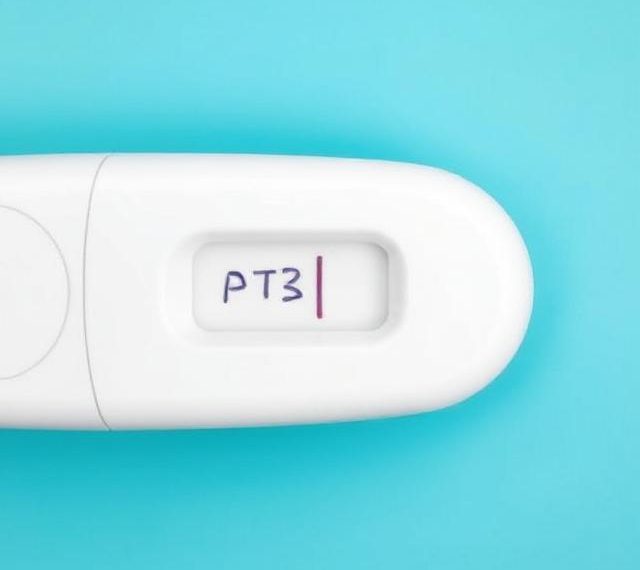Discovering that you’re pregnant can be an exciting and life-changing moment. But before you start painting the nursery or picking out baby names, you’ll want to confirm your pregnancy with a pregnancy test. In this comprehensive guide, we’ll cover everything you need to know about pregnancy tests, from how they work to when and how to take them.
How Do Pregnancy Tests Work?
Pregnancy tests work by detecting the presence of human chorionic gonadotropin (hCG) in your urine or blood. hCG is a hormone that is produced by the placenta shortly after a fertilized egg attaches to the uterine lining. Pregnancy tests are designed to detect even small amounts of hCG in your system, usually within a few days of implantation.
Types of Pregnancy Tests
There are two main types of pregnancy tests: urine tests and blood tests. Urine tests are the most common and can be easily done at home or in a doctor’s office. Blood tests are more accurate and can detect pregnancy earlier than urine tests, but they must be done in a doctor’s office.
Urine Tests
Urine pregnancy tests are typically done by collecting a small sample of urine and either dipping a test strip into the sample or using a midstream test. Most at-home pregnancy tests are urine tests and can be purchased over the counter at your local pharmacy.
Blood Tests
There are two types of blood tests that can detect pregnancy: qualitative hCG tests and quantitative hCG tests. Qualitative tests simply confirm whether hCG is present in your blood, while quantitative tests measure the exact amount of hCG in your system. Blood tests are usually done in a doctor’s office and are more accurate than urine tests.
When to Take a Pregnancy Test

The best time to take a pregnancy test is after you’ve missed your period. Most at-home pregnancy tests claim to be accurate as early as the first day of your missed period, but waiting a few days can increase the accuracy of the test. If you have irregular periods or are unsure when your period is due, it’s best to wait at least two weeks after you think you may have conceived before taking a pregnancy test.
How to Take a Pregnancy Test
Whether you’re taking a urine test at home or a blood test at the doctor’s office, there are a few key steps to ensure an accurate result:
- Read the instructions carefully before taking the test.
- Use the test at the recommended time of day (usually first thing in the morning for urine tests).
- Follow the instructions for collecting and testing the sample.
- Wait for the specified amount of time for the results to appear.
- Read the results within the designated time frame to avoid false positives or negatives.
Interpreting Pregnancy Test Results
Most at-home pregnancy tests will display results as either a positive or negative result. A positive result indicates that hCG has been detected in your system, meaning you are pregnant. A negative result means that no hCG has been detected, but it’s important to note that false negatives can occur if the test is taken too early or not done correctly.
Factors to Consider When Choosing a Pregnancy Test
When choosing a pregnancy test, there are several factors to consider to ensure you get an accurate result:
Sensitivity
The sensitivity of a pregnancy test refers to how early it can detect hCG in your body. If you suspect you may be pregnant and want to test before your missed period, look for a test with high sensitivity, such as an early detection test.
Accuracy
Accuracy is crucial when it comes to pregnancy tests. Look for tests that have a high accuracy rate and low chance of false positives or negatives. Digital tests are often more reliable than traditional strip tests.
Ease of Use
Consider how easy the test is to use. Digital tests are often preferred for their clear readouts, while traditional strip tests require interpreting lines that can be faint or difficult to see.
Cost
Pregnancy tests vary in cost, with traditional strip tests being the most budget-friendly option. However, digital tests and early detection tests may provide more accurate results and peace of mind for a slightly higher cost.
Common Questions About Pregnancy Tests

How Accurate Are Pregnancy Tests?
Most at-home pregnancy tests claim to be over 99% accurate when taken correctly after a missed period. Blood tests are even more accurate, with a 99% accuracy rate. However, false negatives can occur if the test is taken too early or not done correctly.
Can Medications Affect Pregnancy Test Results?
Some medications, such as fertility drugs or certain medications used to treat infertility, can affect the results of a pregnancy test. It’s important to consult with your doctor if you are taking any medications that may interfere with the accuracy of a pregnancy test.
When Should I See a Doctor?
If you receive a positive result on a pregnancy test, it’s important to schedule an appointment with your doctor to confirm the pregnancy and discuss your prenatal care. If you receive a negative result but still suspect you may be pregnant, it’s best to wait a few days and retest or consult with your doctor.
Can a Pregnancy Test Give a False Positive?
It is rare for a pregnancy test to give a false positive result, as hCG is only produced by the body during pregnancy. However, certain medications or medical conditions can cause a false positive result. If you receive a positive result but are unsure, it is recommended to consult with a healthcare provider.
Can a Pregnancy Test Give a False Negative?
On the other hand, false negative results are more common with pregnancy tests. This can occur if the test is taken too early, if the urine is too diluted, or if the test is expired or used incorrectly. If you receive a negative result but still suspect you may be pregnant, it is recommended to retest or consult with a healthcare provider.
Are Home Pregnancy Tests Accurate?
Home pregnancy tests are generally accurate when used correctly. However, it is important to follow the instructions carefully and to use the test at the right time for the most accurate results. If you have any doubts about the result, it is best to consult with a healthcare provider for confirmation.
When is the best time to take a pregnancy test?
The best time to take a pregnancy test is after you have missed your period. However, some tests, such as early detection tests, can detect pregnancy a few days before your missed period.
What do the results mean?
A positive result typically means you are pregnant, while a negative result means you are not pregnant. If you receive a positive result, it is recommended to follow up with your doctor for confirmation.
Can medications affect the results of a pregnancy test?
Some medications, such as fertility drugs or certain medications used to treat infertility, can affect the results of a pregnancy test. It is important to consult with your healthcare provider if you are taking any medications that may interfere with the accuracy of the test.
Conclusion
Pregnancy tests are a simple and effective way to confirm whether you are pregnant. By following the instructions carefully and taking the test at the right time, you can trust the results and begin planning for your new arrival. If you have any concerns or questions about pregnancy tests, don’t hesitate to reach out to your healthcare provider for guidance and support.
Remember, a positive pregnancy test is just the beginning of your journey to motherhood, so enjoy this special time and take care of yourself and your growing baby!







































